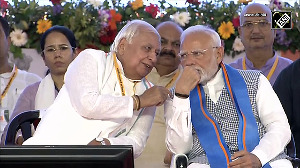Sounding a note of caution for India's policy planners, a study by International Monetary Fund has advised against hasty privatisation and liberalistion saying a seven per cent economic growth could still be achieved while avoiding the mistakes of Latin America.
"Hastily embarking on an overly ambitious agenda of economic liberalisation and privatiation should be avoided if India wishes to achieve seven per cent growth rate, Arvind Subramanian of IMF's Research Department and Dani Rodrik, Professor, Harvard University, said in a major IMF working paper.
The paper said that knee-jerk reaction of many economists to move as quickly and broadly as possible in areas such as privatisation, especially in infrastructure sectors, labour market reform and capital-account liberalisation has to be tempered with serious empirical analysis and an appropriate concern for social and distributional impacts.
However, it pointed out that reforms in India had grown out of the stage from being crisis-driven to success driven, which makes it more likely that they will be sustained and not subject to major reversals.
Economic growth is best sustained by keeping the private sector excited about investing in the local economy, it said, adding this requires a pragmatic set of policies towards the private sector that combine carrots with sticks, incentives for dynamic efficiency with market disciplines.
The habitual pragmatism and gradualism of Indian policy-making, dictated by the need to manage pluralism and diversity -- the organising principle of the 'idea of India' -- is here more of an asset than a liability.





